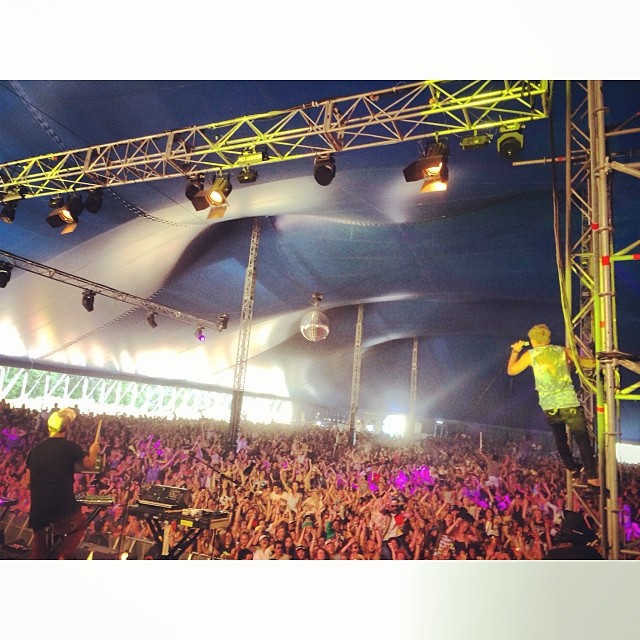I fell out of love with music after about 5 years as a professional artist. I burnt out. The passion I had felt for music when growing up had run dry and I was anxious. So anxious in fact that I wanted to withdraw from writing, performing and singing almost entirely. I had lost touch with the joy and meaning that had inspired me to pursue a career in the arts. I needed to press pause.
So I did. I had been touring with a band for around 2 years and my musical collaborator and I took a conscious time out. Many of the lessons contained in Mental Spinach are a product of lessons that I learnt through research and reflection when I had to reassess what it meant to live a fulfilling and sustainable creative life. In short it was a journey to rekindle my relationship with my own creativity. The book also contains many of the tools that I saw propel artists around me and enabled them to sustain successful careers in the arts in Australia and abroad.
Mental Spinach is the toolkit I wish I had had when I began my life as an artist.
On tour with Rufus at Falls Festival.
When you begin your career as an emerging artist you would be one of the lucky few if you managed to find a mentor who you could guide you into and through a career in the arts. These individuals are brilliant, but difficult to find. There is also no set path or guidebook to follow and I can’t remember anyone in my 9 years of formalised music education ever asking me to explain what I believed it meant to live a creative life. On top of this no one let me in on the secret that I actually had the power to set the rules for what I wanted in my creative life.
Only after I had been working as an emerging artist for years did I realise that, like 76% of other artists in Australia, I was a small business owner and entrepreneur and that I needed to develop the requisite skills to grow my own business. Even after finishing a degree at arguably the top music conservatorium in Australia, I had not encountered a single tutor whose job it was to discuss these topics. Nor had any of our tutors talked about how to begin building the mental, physical, social, spiritual and financial framework to weather the challenges that go hand in hand with working in the arts. Mental Spinach is just one contribution towards filling that space.
My hope is that through the changes and evolution that take place in your artistic career Mental Spinach will be there to prompt thoughts, additional perspectives and creative solutions to the challenges and opportunities you will undoubtedly encounter. In many ways I believe a career in the arts is survival of the fittest and the fittest are those who are mentally, physically and spiritually prepared. Mental Spinach is part of that preparation.
On tour with The Jungle Giants around Australia.
Why Four Lenses and how could Mental Spinach help me?
Mental Spinach offers a framework for thinking that can be used for decision-making and for spotting opportunities in the world around you. It brings together a broad range of concepts from psychology, business management and personal development. Our goal in writing Mental Spinach was to streamline and distil these mega-industries into four simple themes. The tools and questions in each theme aim to give you an increased chance of picking the best path forward and some tools to pursue that path in a authentic, effective and sustainable way.
It can be easy to rush past big decisions or to ignore significantly limiting habits and mindsets. Many of us don’t take the time to stop and think critically and creatively about our options, our potential and how we might maximise them. You can use the Four Lenses (the Identity Lens, the Opportunity Lens, the Impact Lens and the Sustainability Lens) as a way to enrich your decision making and strategic or creative planning.
Each of the chapters can help you to more successfully reflect on and navigate important creative processes, like your:
- practice technique and routine;
- time management;
- promoting and extending the reach of your art;
- managing creative and broader relationships;
- philosophy on what it means to live a creative life;
- mindsets and habits for surviving a fluctuating financial life;
- ability to avoid burnout;
- understanding and navigation of your creative expectations;
- ability to fearlessly say no and set your own creative boundaries; and
- understanding of your own overall concept of life balance.
At the end of this blog is a streamlined list of questions/tools which can be easily applied by those building a creative career or business.
How do I incorporate Mental Spinach into my creative practice or into my community?
We recommend a range of ways in which Mental Spinach can have a positive impact on your creative practice and in your creative community. It can be used to empower individuals and groups through one or more of the following ways:
- individuals can have a copy on hand to inform day-to-day decision making (that’s why it’s pocketbook size);
- mentors, mentees and coaches can use Mental Spinach to enrich conversations about specific projects, creative practice or broader concepts; or
- teams can use Mental Spinach as a resource to incorporate diverse perspectives into decision making processes.
Singing for the 2018 #ABCYours Campaign.
That’s it for now...
We are so excited to be able to share Mental Spinach with the world. If you are an artist I would love to hear which parts of the book resonate with the creative questions you’re currently asking. Stay in touch and we would love to hear what you think of our green pocketbook!
Buy Mental Spinach
or
Leave a review
---
Appendix: Big creative questions and where to find them in Mental Spinach
The following list highlights a range of questions that emerging artists often face and links them to pages in Mental Spinach.
The Identity Lens – Why am I an artist and what does success look like for me?
- What is my own definition of creative success?
- How do I measure my own success?
- What creative patterns are ruling my artistic life?
- Where is the zone in which I will create my best art?
- What are my creative priorities?
- Where and who are my creative supporters?
The Opportunity Lens – How do I grow my creative world?
- How do I spot and pick big creative opportunities?
- How do I come to terms with and learn from the creative opportunities I’ve missed out on?
- How can I make the most of my daily creative habits and mindsets?
- What does it mean to be part of an artistic community and how do we embrace reciprocity?
The Impact Lens – This creative opportunity has just become possible, how do I make it as successful as possible?
- How do I create a routine that gives me maximum creative bang for my buck or effort?
- How do I supercharge my creative cycle so that it keeps growing?
- I’ve just hit a creative road block, now what?
- How can I keep learning and being creatively curious?
- How do I find the maximum amount of time and energy for my creative practice?
The Sustainability Lens – How can I make my creative life sustainable and avoid burn out?
- How do I balance and juggle different creative interests and areas of my life?
- I’m a perfectionist. Please help!
- Help me explore what a sustainable relationship with my creativity looks like?
- How do I know when I’m moving into unsustainable creative patterns where I could be inching close to burnout?
- Can I learn to switch off?
- How do I build gratitude and mindfulness into my ongoing creative practice?















